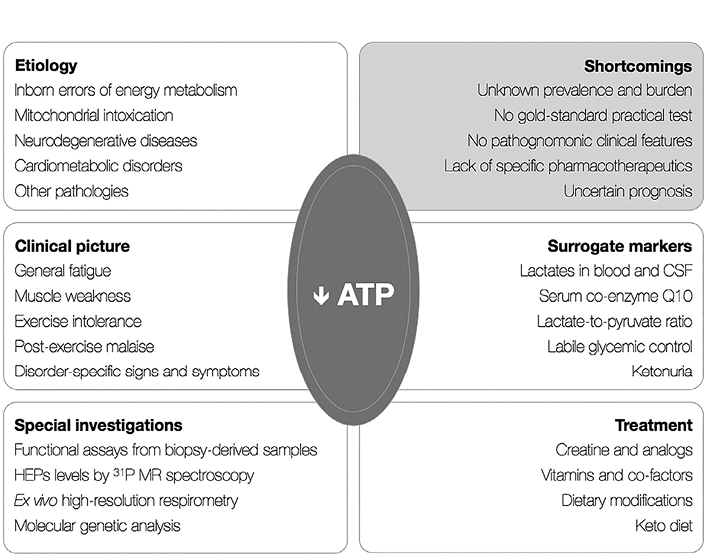nanonug
Senior Member
- Messages
- 1,709
- Location
- Virginia, USA
https://doi.org/10.1620/tjem.243.227
Abstract
Mitochondrial energy deficit is considered a key element of different clinical pathologies - from inherited disorders of energy metabolism to drug-induced mitochondrial toxicity, to cardiometabolic and neurodegenerative diseases. However, clinical manifestations of impaired bioenergetics are not easy to recognize, with patient-reported features usually include non-pathognomonic fatigue and weakness, or exercise intolerance, while specific lab tests are missing. Although it is not clear whether poor energetics is a primary deficit or a secondary consequence of specific disorders, improving mitochondrial viability remains a challenging task in both experimental and clinical medicine. In this review, biochemical and clinical evidence of energy deficits were reviewed, along with possible therapeutic options to tackle energy failure and restore bioenergetics.

Abstract
Mitochondrial energy deficit is considered a key element of different clinical pathologies - from inherited disorders of energy metabolism to drug-induced mitochondrial toxicity, to cardiometabolic and neurodegenerative diseases. However, clinical manifestations of impaired bioenergetics are not easy to recognize, with patient-reported features usually include non-pathognomonic fatigue and weakness, or exercise intolerance, while specific lab tests are missing. Although it is not clear whether poor energetics is a primary deficit or a secondary consequence of specific disorders, improving mitochondrial viability remains a challenging task in both experimental and clinical medicine. In this review, biochemical and clinical evidence of energy deficits were reviewed, along with possible therapeutic options to tackle energy failure and restore bioenergetics.

